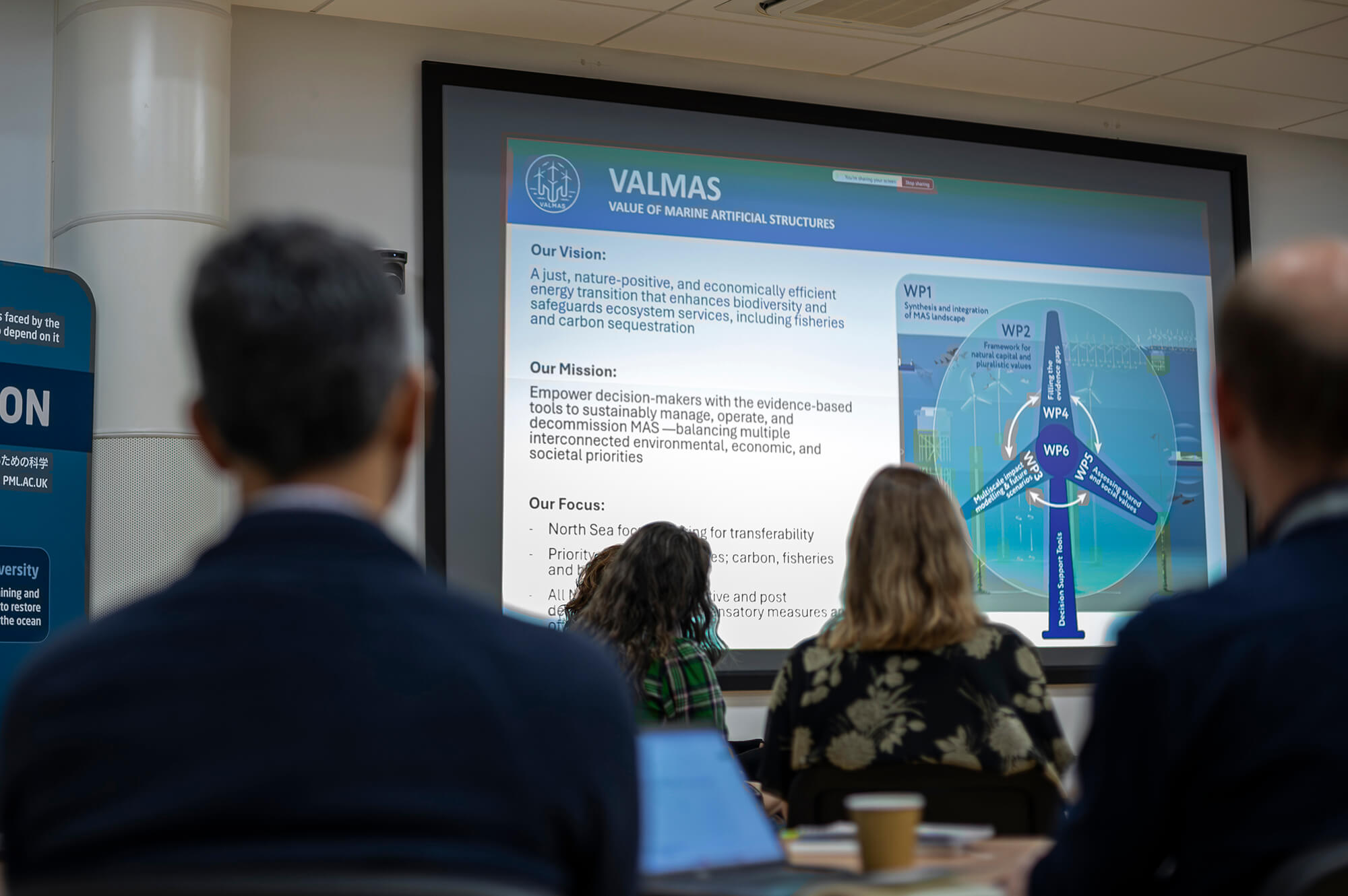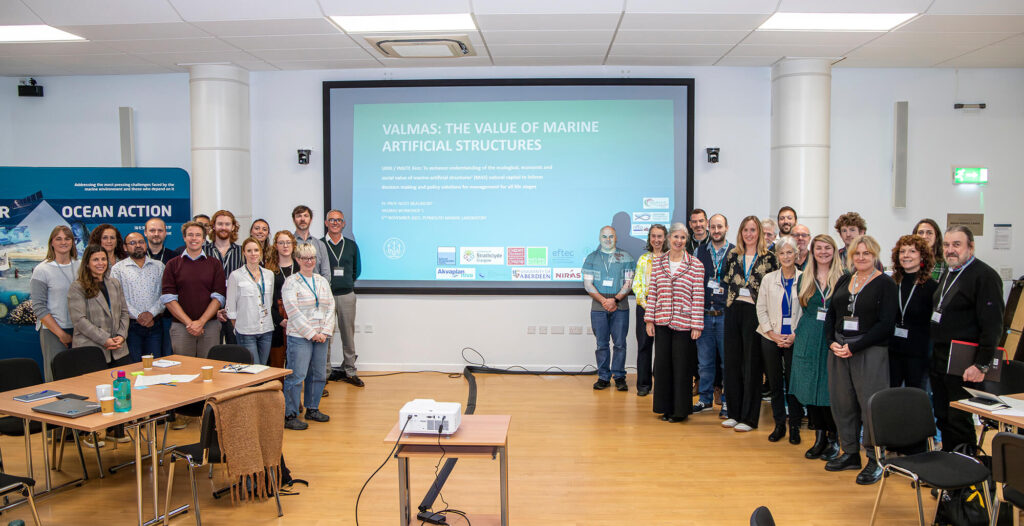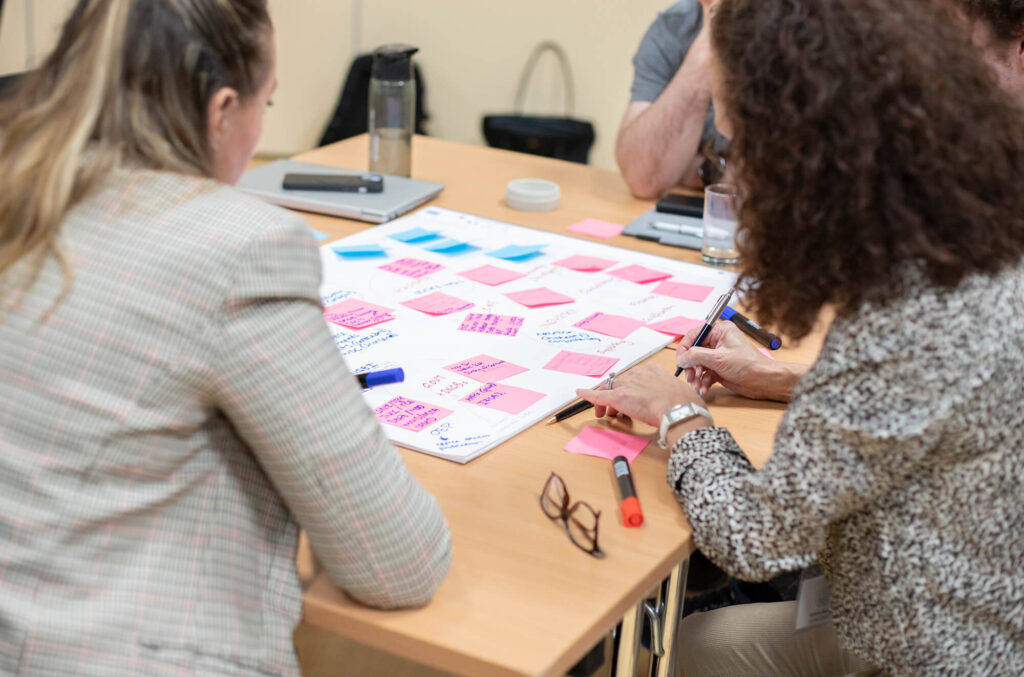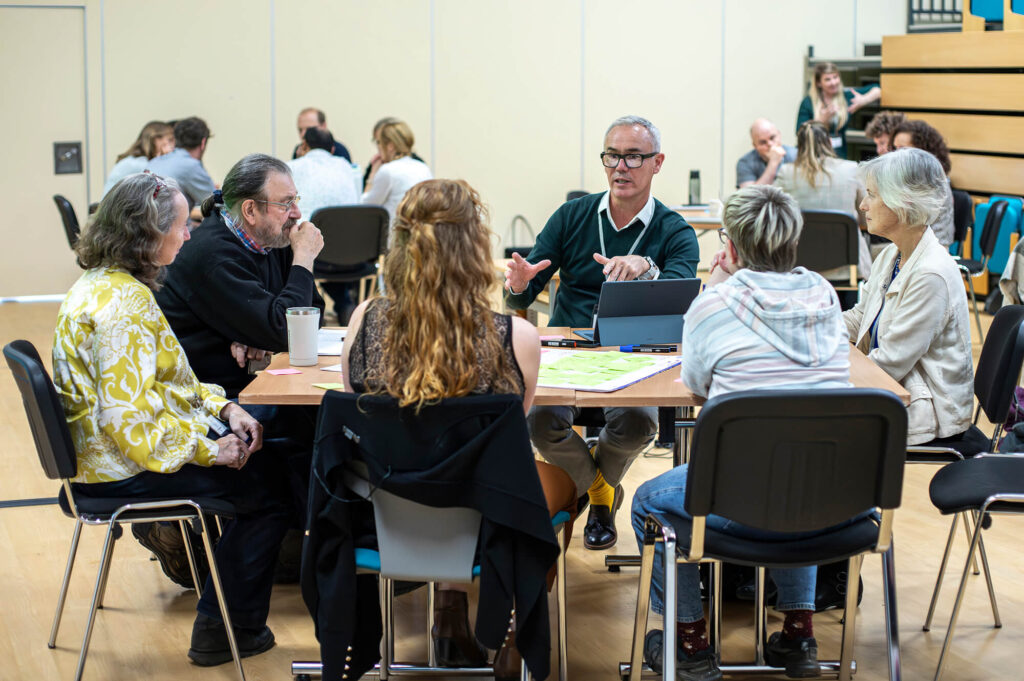Story
£5.6M project to guide UK's offshore energy future launches in Plymouth
07 November 2025
Scientists, political advisors and industry leaders from across the globe came together this week to mark the official launch of a multi-million pound research project, exploring ways to transform how offshore structures are managed.

VALMAS Kick-off Meeting at PML
There is a growing body of evidence about the impacts of offshore oil/gas/wind infrastructure and shipwrecks on the marine environment. These structures are collectively known as marine artificial structures (MAS), and can have significant environmental footprints at all stages of their lifecycle, from demonstration and construction to operation and decommissioning.
As marine space is increasingly squeezed, these large-scale developments will inevitably lead to environmental, social and economic trade-offs. While these structures can provide habitat, support blue carbon capture or enhance biodiversity, they also pose risks that are not yet fully understood.
The £5.6 million ValMAS (Value of Marine Artificial Structures) project aims to support a just, nature-positive and economically efficient transition to low-carbon offshore infrastructure. This ambitious four-year programme will generate vital new evidence on how MAS may impact the ocean environment, economy and society.
The three-day kick-off meeting, held at Plymouth Marine Laboratory (PML) this week, officially launched the project, which included a dedicated day of co-development discussions with stakeholders from industry and government, designed to shape the direction of the research and foster cross-sector partnership.

The PML team are co-ordinating major elements of the ValMAS project to help uncover the true ecological, economic and social value of marine artificial structures.
Dr Stephen Watson, Deputy Lead of ValMAS and Senior Ecosystems Services Scientist at PML, said:
“From offshore wind turbines to decommissioned oil platforms, these installations can play a vital role in supporting biodiversity and contributing to net-zero goals but we need solid evidence to understand when, where and how they provide real benefits. With a team of 14 academics across diverse disciplines, including ecology, environmental modelling, social science and economics, PML is bringing together world-class expertise to ensure ValMAS delivers the knowledge and tools needed to guide nature-positive decisions for our shared ocean future.”
“What I hope ValMAS will achieve is a deeper understanding of how we can balance the urgent challenges of climate change, the energy transition and marine conservation. By providing the evidence base for more informed, equitable and sustainable decisions, ValMAS has the potential to help society protect ocean health while supporting the communities and industries that depend on it”.

Prof. Nicola Beaumont, Mission Network Lead for Sustainable Marine Economy at the National Oceanography Centre (NOC) and ValMAS project lead, said:
“This is a vital project that will give decision makers, in government and industry, the tools they need to make informed decisions as part of the UK’s transition to a low carbon energy future. These workshops are the beginning of that journey and demonstrate the importance of collaboration. By fostering strong partnerships from the outset, the initiative aims to deliver impactful outcomes that address real-world challenges.”
“These artificial structures, which include wind farms and offshore oil and gas infrastructure, play a crucial role in our energy future and have both positive and negative impacts on the marine environment. The VALMAS project will enable a sustainable energy transition, ensuring that we maximise environmental benefits whilst mitigating for any environmental damage ”.

The ambitious ValMAS project is funded by the Natural Environment Research Council (NERC) and the industry-sponsored INSITE Programme, as part of its commitment to world-leading research that supports the UK’s environmental and energy ambitions. The project exemplifies NERC’s focus on interdisciplinary solutions that deliver societal, environmental and economic benefit. The workshops were the first step in laying a strong foundation for what promises to be a transformative journey.
Related information
Value of Marine Artificial Structures (ValMAS) project website
